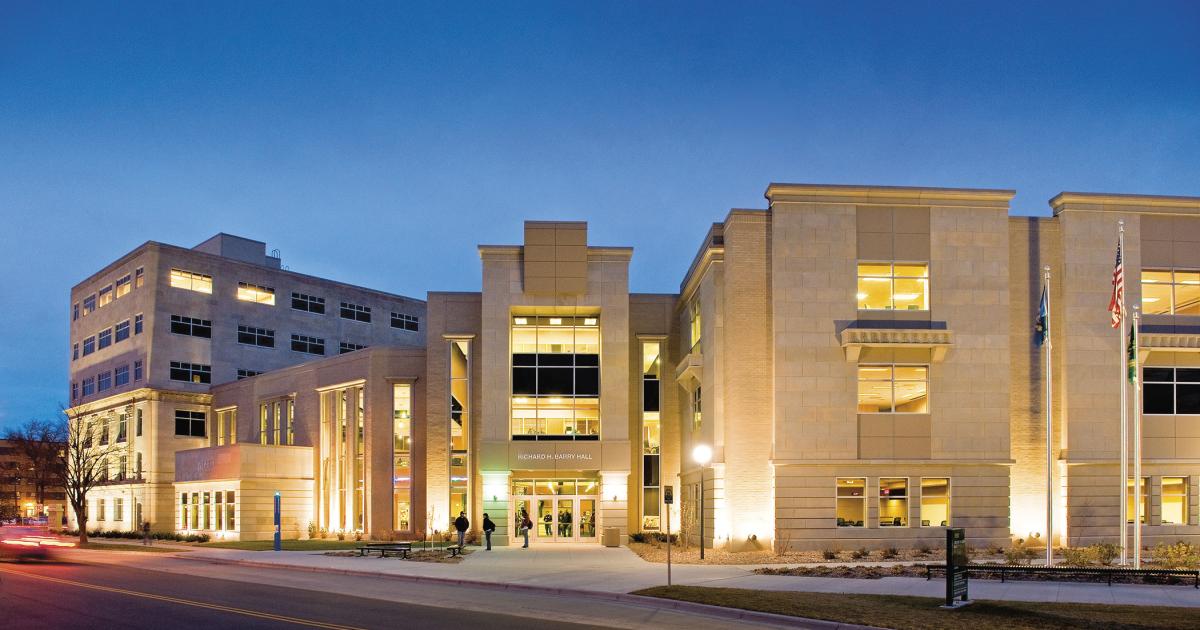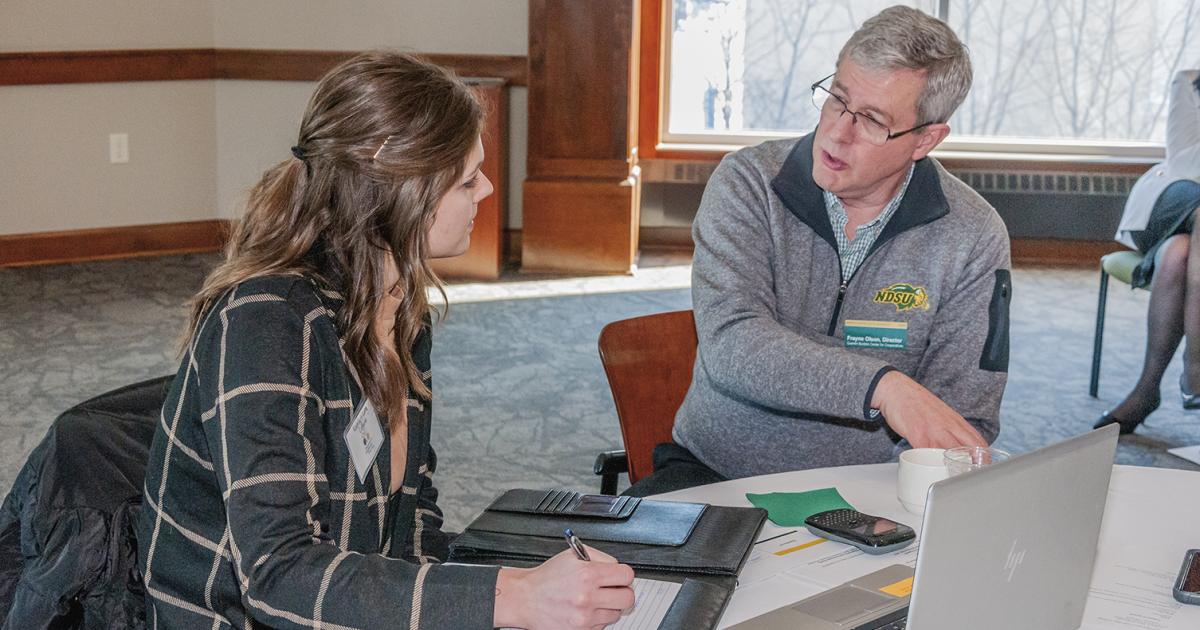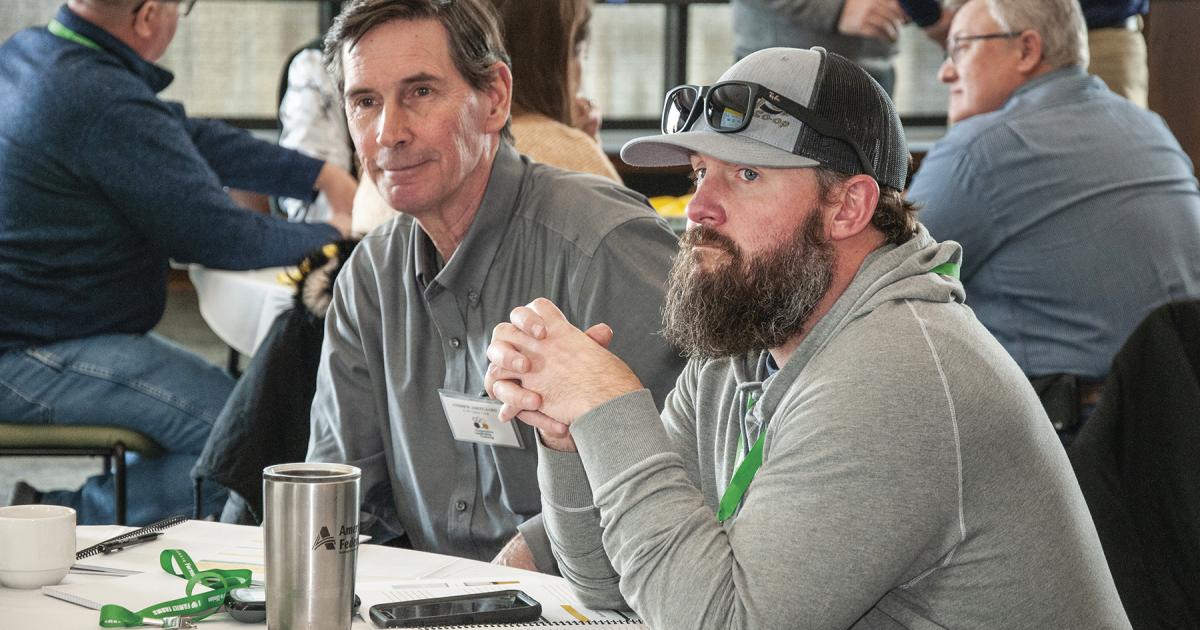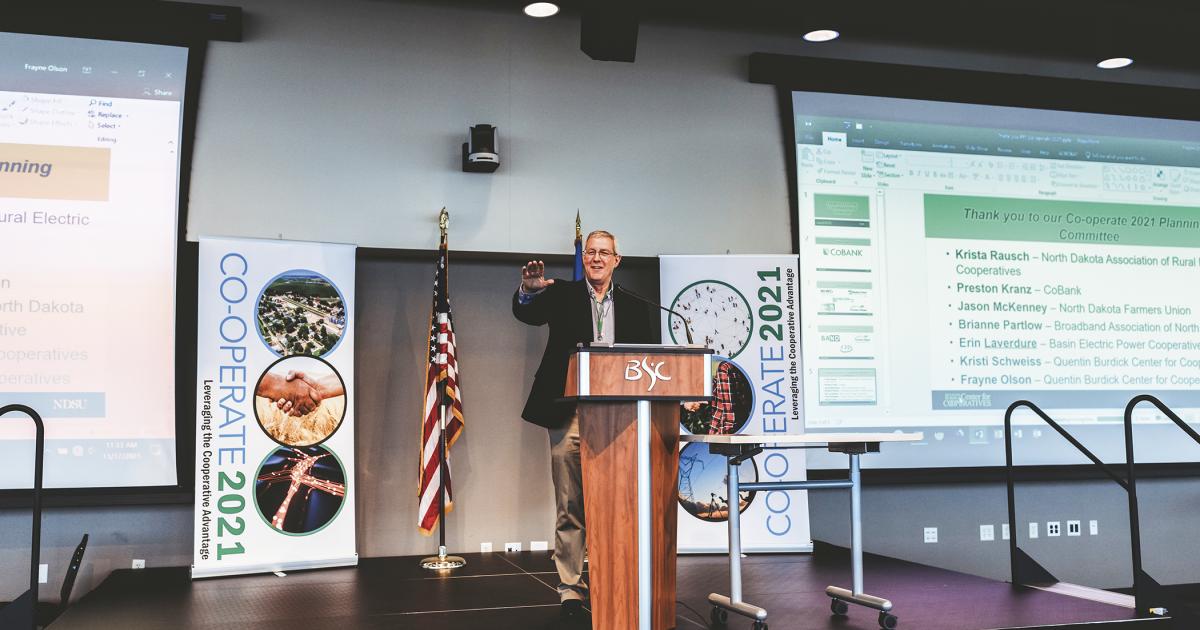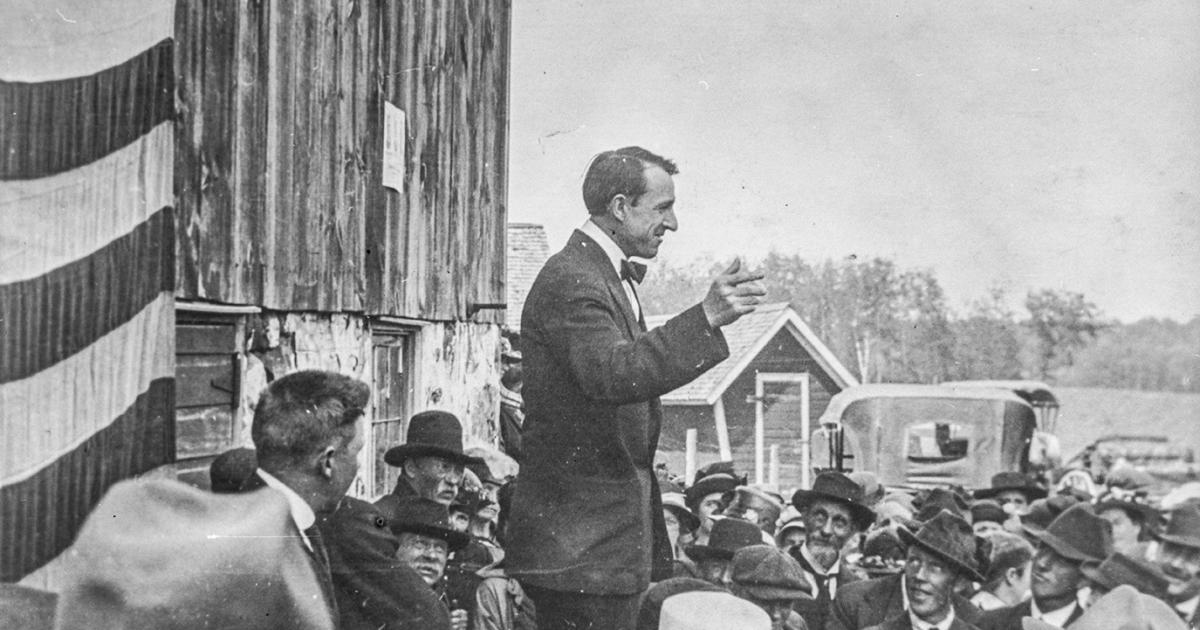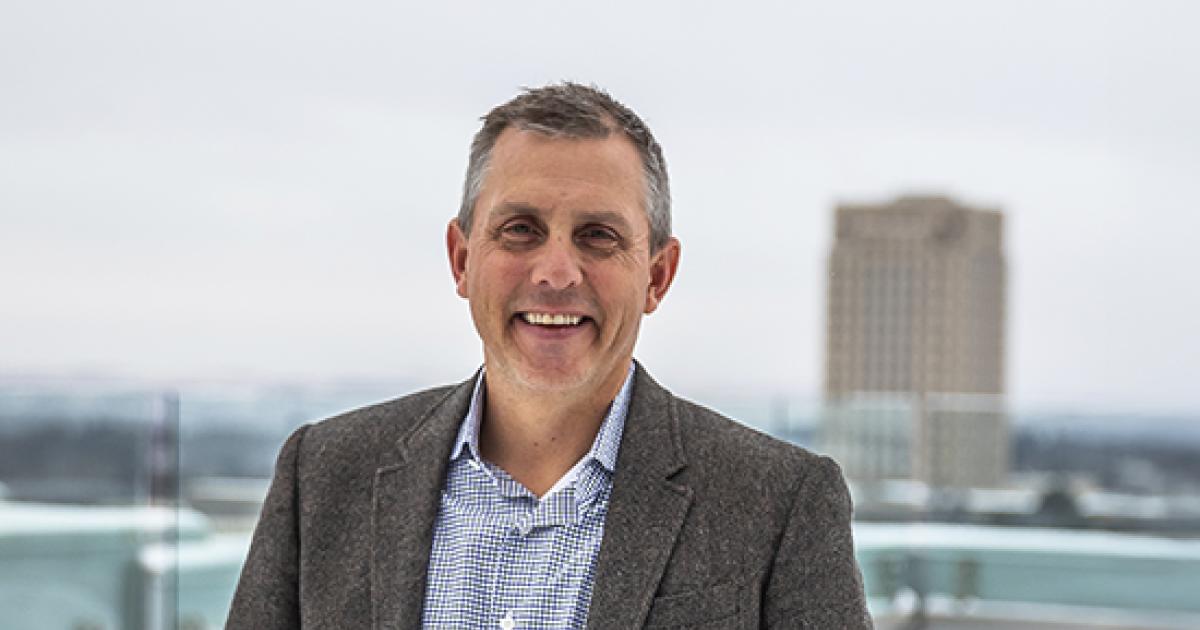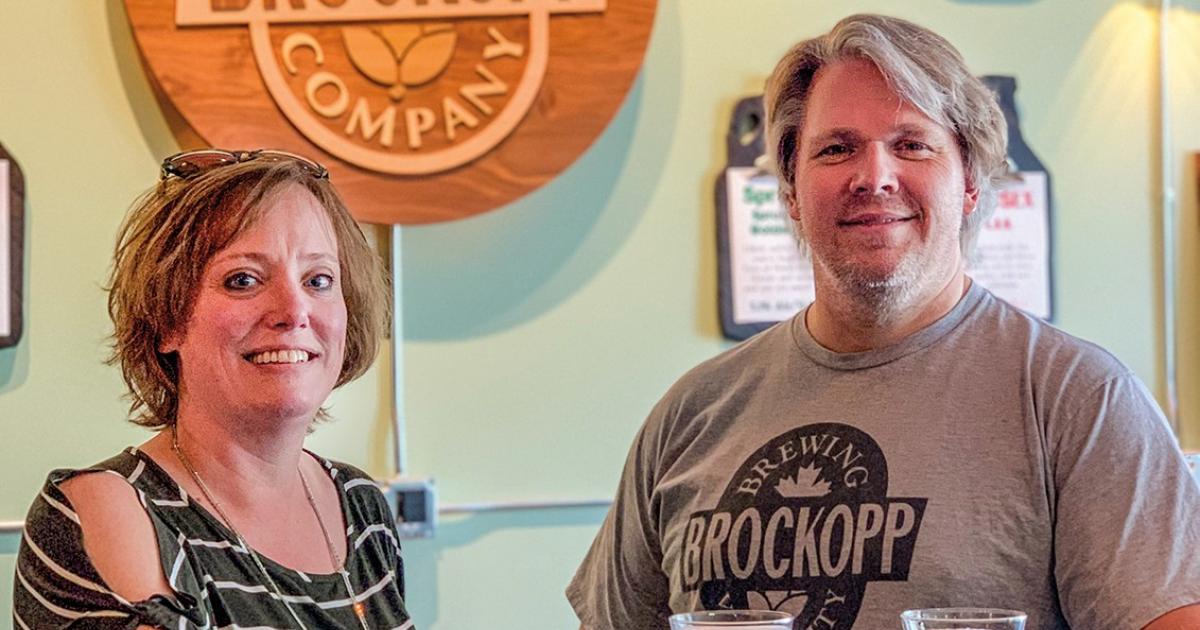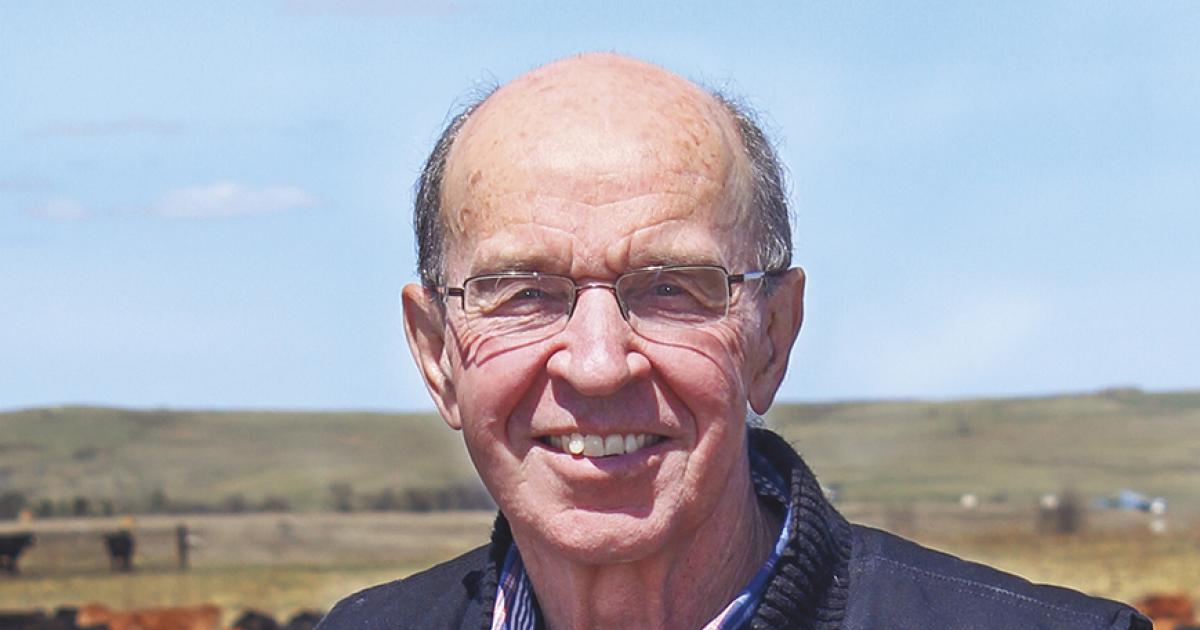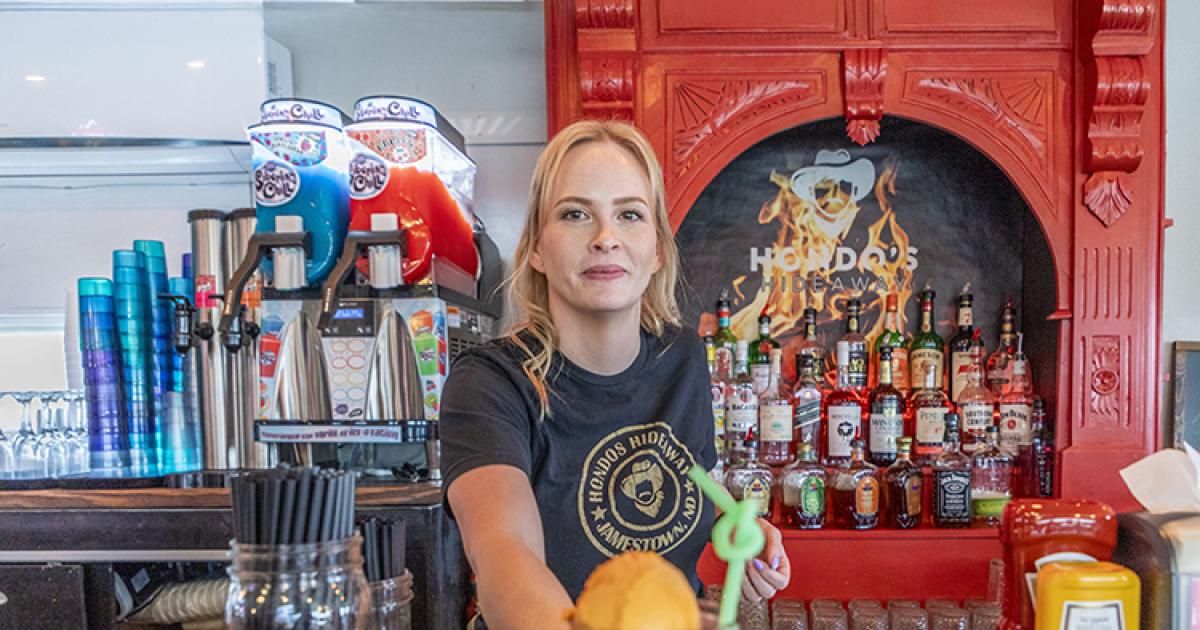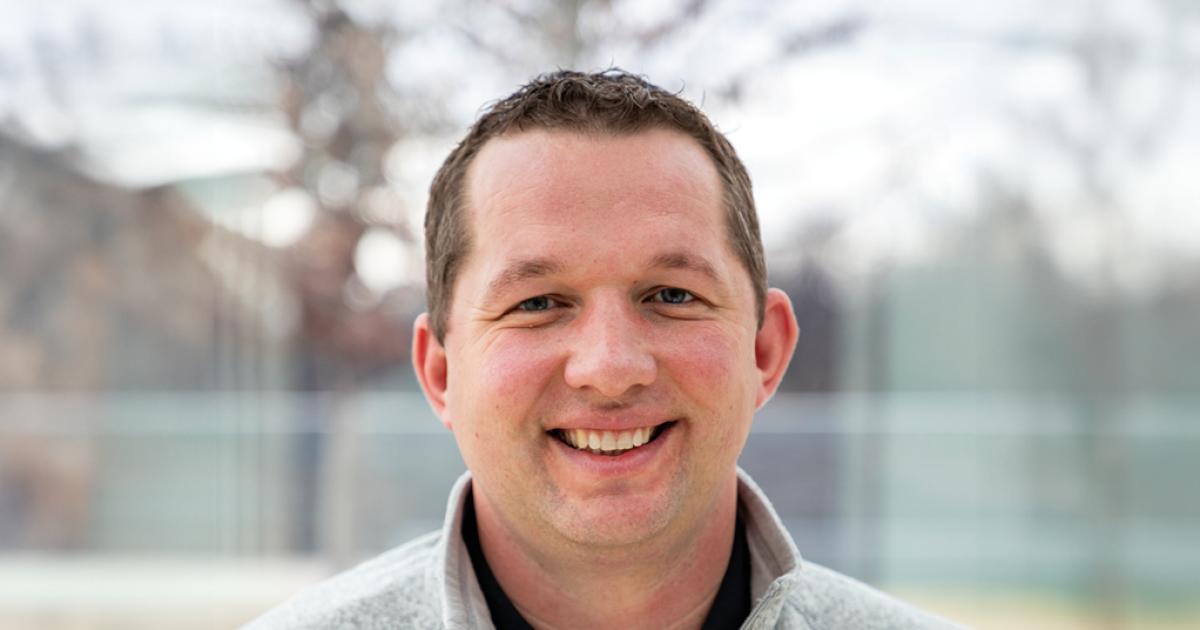The Quentin Burdick Center for Cooperatives is headquartered in North Dakota State University’s Barry Hall in downtown Fargo. Photo courtesy NDSU
In the heart of downtown Fargo stands Barry Hall, a 1920s-era building with square façades and a clean stone finish. Behind its doors is one of North Dakota’s best-kept secrets – one that has proven invaluable to many North Dakota cooperatives and the communities they serve.
For 30 years, the Quentin Burdick Center for Cooperatives (QBCC) has been the region’s trusted source for cooperative education and research. A partnership between the region’s cooperatives and North Dakota State University (NDSU), the center works to enhance the business potential of cooperatives through research, education and outreach. And, much like the cooperatives it serves, it was started through grassroots advocacy.
“The co-op community came together and said, ‘Let’s form a partnership,’” says QBCC Director Frayne Olson. “The concept was that the university would make sure there was a faculty member to serve as the director of the center, provide research and teach the cooperatives class, and the cooperatives would put money into an endowment to fund its activities.”
NDSU was a natural partner. The university, known for its agricultural programs, was already providing cooperative education to its students. The cooperatives class was taught by Dr. David Cobia, the man who literally wrote the textbook on cooperatives, titled “Cooperatives in Agriculture.”
“There was a need for cooperative education, and Dr. Cobia filled that need,” Olson says. “What really got him a lot of attention and acclaim, of course, was writing the textbook, which was very popular. In fact, it was translated into Japanese and used in some of the universities in Japan for a while.”
In October 1988, the Joint Cooperative Education Committee endorsed the concept of the center, and four years later, the N.D. Board of Higher Education approved its creation. With Cobia its first executive director, the center, named after former U.S. Sen. Quentin Burdick, would become a comprehensive and reliable source for education and research on cooperative businesses.
“A lot of work went into the development of the center,” Olson says. “There were a lot of discussions about what we needed to do and how we were going to do it. I have to give a tremendous amount of credit to the people who took the effort to do that, and to go out and make the argument that this is really important, and we need to do this.”
Educating cooperative leaders
When asked to consider QBCC’s biggest accomplishment over the past 30 years, Olson is quick to answer – the students.
Academics is a key component of the center. Since 1992, QBCC has educated hundreds of university students about cooperative principles and management strategies, preparing them for future cooperative careers.
The cooperatives course, which is offered at NDSU each spring, is unique. First, it’s one of few classes NDSU lists across two different colleges – the Department of Agribusiness and Applied Economics and the Department of Business Administration. This allows students in either program to take the elective course and earn credits toward their degree. Additionally, students taking the course can earn either undergraduate or graduate level course credits.
“As a graduate student, there’s some extra work,” Olson explains. “Students still go to the same class and take the same tests, but they have to write another paper to earn the additional graduate level course credits.”
Since the creation of the center, the demand for cooperative education has grown, and other universities have added the course to their curriculum. Every other year, Olson teaches the cooperatives class remotely for students attending Dickinson State University. The course is also offered by the AG IDEA Exchange, an alliance of accredited public universities that collaborate to provide online classes for the AG IDEA program.
“It’s a consortium of 12 or 13 universities in the north central region of the United States,” Olson says. “It allows the specialized courses to be shared across university systems. So, let’s say I’m a student at the University of Nebraska, and I want to take a course offered by NDSU. I can do that through this system.”
University students aren’t the only ones learning important lessons from the center. After identifying a need for cooperative director training, QBCC launched its Cooperative Leadership Training Program in 2019. The program provides three levels of education for cooperative directors and managers – Foundation, Enhanced and Capstone.
“I went out to the co-ops, and I asked, ‘What can we do, at the center, to better meet the needs of the co-ops in the region?’ It came back pretty strongly that there was this need for executive education,” Olson says. “The center was looked at as an independent source for education and research. So, they said let’s partner again and develop a program that would benefit everybody. We put a really solid system together that provides executive education, while raising visibility of the center.”
The training program, which evolves based on current issues and participant needs, is overseen by the QBCC Executive Education Committee, which includes representatives from QBCC, the North Dakota Association of Rural Electric Cooperatives (NDAREC), CoBank, CHS, North Dakota Farmers Union, the North Dakota Grain Dealers Association and Widmer Roel.
Building cooperative connections
Another important focus of the center is fostering connections among the region’s cooperatives. It accomplishes this goal by providing opportunities for co-op leaders to come together and share ideas across industries. The Co-operate event, which was first held in 2021, is one example of QBCC’s outreach efforts. The biennial convening event brings together leaders from different cooperative sectors to celebrate, collaborate and expand the impact of cooperatives.
“As cooperative leaders, we dedicate a lot of our time to the industries we serve. It’s our job. But, when you think more broadly, we all serve the same people. You look at a rural community, and our memberships overlap. So, what can we do together?” says Josh Kramer, NDAREC executive vice president and general manager. “We need to focus more on what we can collectively do to improve the quality of life for our members. Nobody is going to save rural America. We have to do it ourselves.”
Those connections not only benefit our state’s established cooperatives, but newly formed cooperatives, as well.
“What we can lend to those new cooperatives is support. We can find ways for them to participate in our educational programs or find ways for them to secure some seed capital or lending services,” Kramer says. “As cooperatives that have been around for a while, we have an obligation to help.”
As new cooperatives emerge and new challenges arise across rural industries, the value of the center and a connected cooperative network becomes increasingly evident. And, as the needs of the region’s cooperatives shift, so, too, will the work of the center.
“There’s a lot more work out there than I’m ever going to get done in my career. So, as far as the need for the center and the things the center can contribute, I see a demand for a long time forward,” Olson says.
Krista Rausch is communications specialist for the North Dakota Association of Rural Electric Cooperatives and Capital Electric Cooperative. She can be reached at krausch@ndarec.com.
Support the Quentin Burdick Center for Cooperatives
For 30 years, the Quentin Burdick Center for Cooperatives (QBCC) has been the region’s trusted source for cooperative education, research and outreach. To help secure a bright future for cooperatives in the state and advance local industries, the center is working to build its endowment fund.
Investments in QBCC’s endowment fund provide the stability needed to maximize the center’s offerings, increase the value of its executive training series and continue providing cooperative education, research and outreach to students, businesses and cooperatives in North Dakota.
For more information on how to support the important work of QBCC through its endowment fund, contact the North Dakota State University Foundation by email, office@ndsufoundation.com, or by phone, 800-279-8971.


